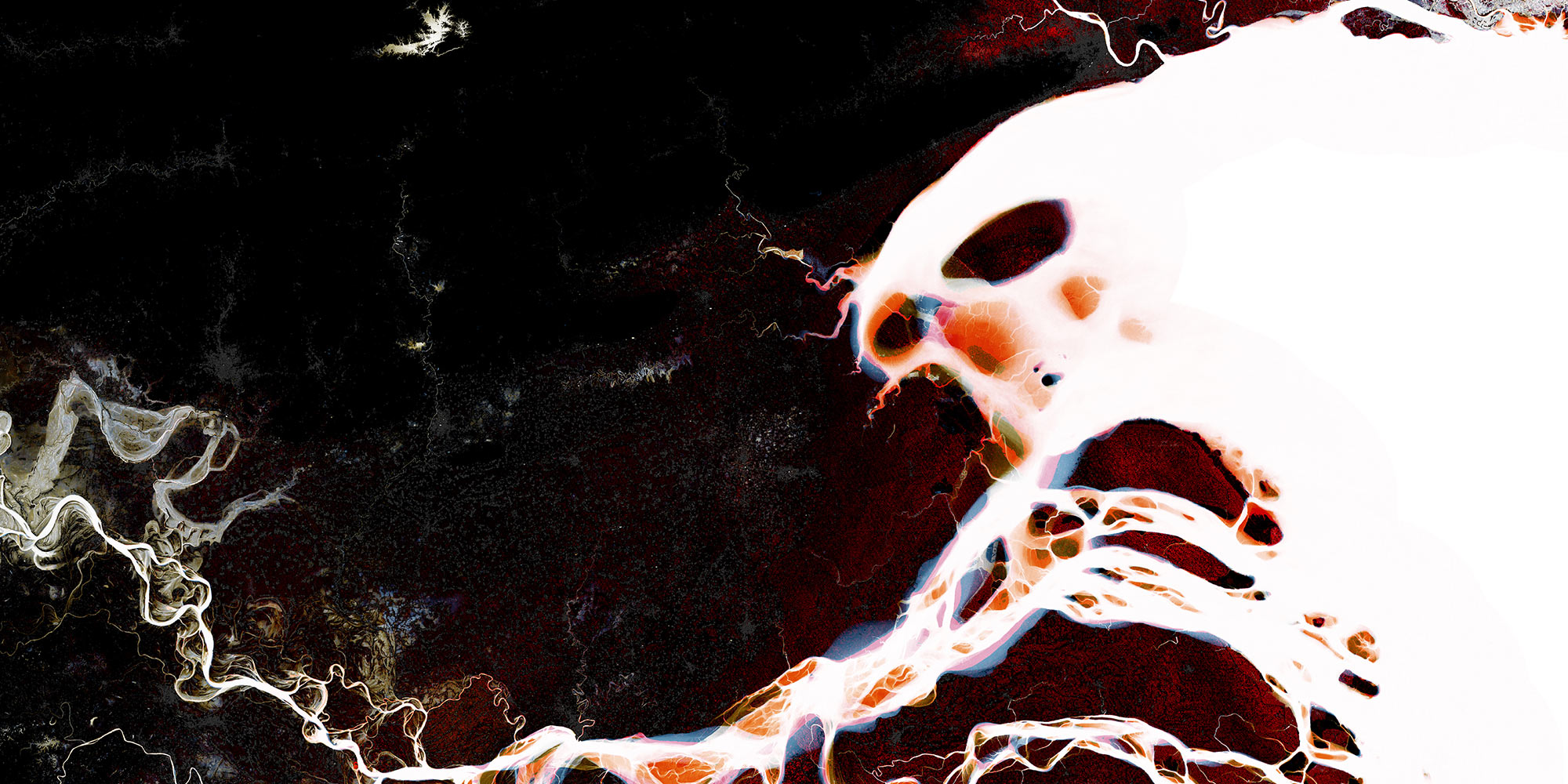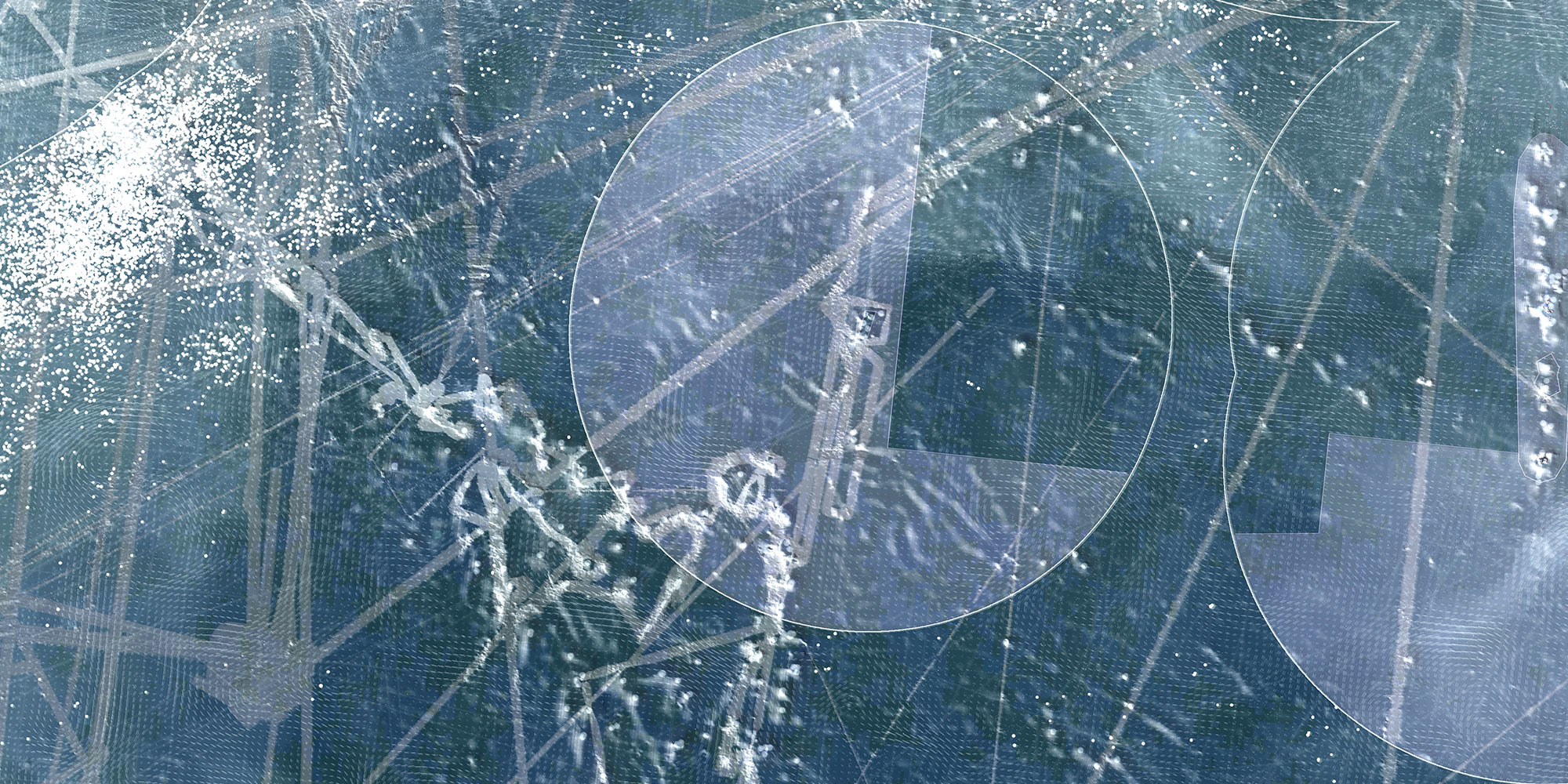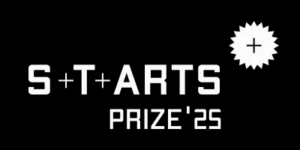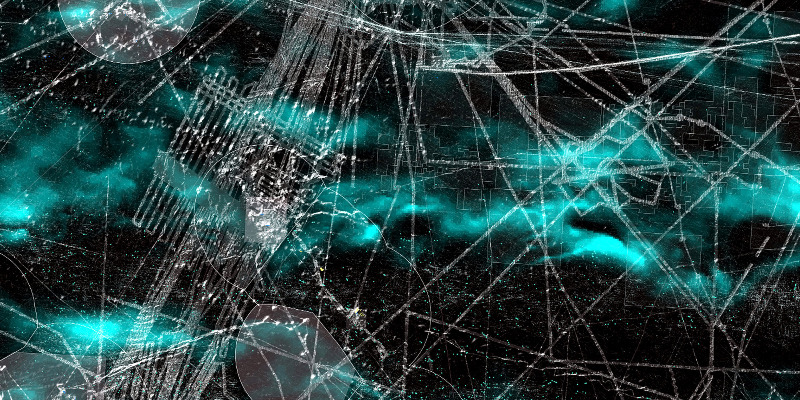Grand Prize – Artistic Exploration: Awarded for artistic exploration and art works where appropriation by the arts has a strong potential to influence or alter the use, deployment or perception of technology.

Oceans in Transformation investigates the impact of human activity on the world ocean. The global ocean is changing its circulations, energies, interactions, and ecologies. It is the most dynamic and sensitive component of our living planet. The ocean is in a new phase of its dynamic history, shaped by intensifications of the impact of human activities on planetary systems—the Anthropocene.
Territorial Agency uses extensively geospatial and remote sensing data to produce public settings—exhibitions, seminars, workshops and online—to guide discussions between multidisciplinary expert groups, scientists, policy makers, activists, conservationists, and to build capacity to act on complex environmental issues. Oceans in Transformation is a project that addresses the challenges linked to multi-scalar data, multi-temporal data, and dynamic environmental data, in direct connection with contemporary arts, architecture, and environmental settings.
The ocean is a sensorium, an aesthetic device: it records in its complex dynamics the transformations of the Earth, and it inscribes back its cycles in the dynamics of life-forms. Oceans in Transformation is an aesthetic and conceptual setting, where different ways of being sensitive to the complex events of climate change are brought into close proximity. It investigates two systems of knowledge developing alongside each other, often with little contacts between them.
On one side Earth System science is developing rapidly and widening our understanding of the Earth as a living entity. The ocean is a key element of the Earth System—yet one of the least known. Oceans in Transformation is organized by large dynamic compositions of remote sensing images where the gaps between different knowledge components, areas with no data and areas with contradictory and ambiguous understanding are highlighted and brought to the forefront. The dynamic compositions of Earth System science data offer in this sense no overview, rather a multiplicity of areas of research each one attempting to find more focus and calibration.
On the other side we have the complex unfolding of world-systems analysis, the long-term forms of coherence of human societies, with an emphasis on datasets and narratives that unfold the complex ways in which we are starting to exit the modern world-views of globalization and the long echo of imperialism and the subjugation of nature to extractivist practices.
Oceans in Transformation proposes an innovative viewpoint on the transformation processes that are shaping contemporary societies and the territorial narratives that underpin them. By investigating through complex spatial and environmental images the material character of the spaces that specific polities inhabit, Oceans in Transformation indicates the magnitude of contemporary human activity. It indicates the coherence of long-term forms of inhabitation practices, as they unfold in time and across space, often shaping quasi-stable levels of coherence with dimensions that are interacting with the cycles of the Earth.

With Oceans in Transformation Territorial Agency has developed an active way to engage and inquire into the knowledge systems of Earth System and world-system analysis, that rarely connect. There is a world beside each one of them, with interlocking elements of insight, and interwoven transformation processes that range from acidification of the seas to depletion of forests in native lands, from overfishing to ocean warming, from intensified use of natural resources in coastal areas to sea level rise, from the destruction of the cryosphere to loss of languages.
As the world ocean is transforming, its vast, interconnected waters indicate that the ways of sensing them are plural. Over the last decades a wide range of new measurements and observations have increased the knowledge of the changing ocean and have also multiplied the number of different agents operating with them. Oceans in Transformation allows inquiry into both systems, and drawing up each one into the other’s unfolding.
Territorial Agency’s work focuses on the integration of science, architecture, and art in the challenges posed by climate change. The work of Territorial Agency is grounded in extensive spatial and territorial analysis through remote sensing technologies. Its focus is on complex representations of the transformations of the physical structures of contemporary inhabited territories. Through its work Territorial Agency engages different polities to re-evaluate the relations to the complex material, energy, and information fluxes that mark contemporary territories.

Credits
Oceans in Transformation is a research project by Territorial Agency—John Palmesino and Ann-Sofi Rönnskog, commissioned by TBA21–Academy.
Territorial Agency team: Maria Radjenovic, Maximilian Schob, Eva Ibáñez Fuertes, Sahir Patel, Joshua Harskamp, Eleni Tzavellou Gavalla, Stavros Papavassiliou.
The exhibition Territorial Agency: Oceans in Transformation at Ocean Space, Church of San Lorenzo, Venice in 2020 and 2021, is curated by Daniela Zyman. It is co-produced by Luma Foundation, and supported by Lunu.
Territorial Agency—John Palmesino and Ann-Sofi Rönnskog (INT). Territorial Agency is a London-based independent organization that combines contemporary architecture, science, art, advocacy, and action, based on comprehensive spatial analysis and the formation of new settings for public diplomacy. Recent projects include Oceans in Transformation commissioned by TBA21¬–Academy, in collaboration with ZKM Critical Zones and Taipei Biennial 20; Museum of Oil with Greenpeace, ZKM Reset Modernity and Chicago Architecture Biennial; Anthropocene Observatory with Armin Linke and Anselm Franke at HKW Haus der Kulturen der Welt Berlin, BAK Utrecht and in the collection of Centraal Museum Utrecht; Plan the Planet with AA Architectural Association supported by Graham Foundation; North anon in Kiruna Forever at ArkDes; the Museum of Infrastructural Unconscious; and the integrated plan for the Zuiderzee region, Unfinishable Markermeer. John Palmesino (ITA) and Ann-Sofi Rönnskog (FIN) teach at the AA Architectural Association School of Architecture, London.
Jury Statement
Oceans in Transformation is a strong call to collaborate across disciplines to deepen our knowledge of the oceans and to act together to safeguard the future of our living ecosystems. Housed inside the Church of San Lorenzo in Venice, in a place that can remind us of the wonderful and fragile balance between man and nature, the collaborative platform Ocean Space presents the multimedia exhibition conceived by the collaboration between the architects of Territorial Agency, TBA21–Academy, and e-flux Architecture.
The work is the outcome of a three-year multidisciplinary investigation and research project on the state of the oceans in transformation, linking science, arts, and politics, by producing shared images of the oceans, earth science and remote sensing datasets with data from satellites, GPS, AI, sonar scans, and climate models produced by different actors and research disciplines, revealing the magnitude of the impact of human activities on the oceans. The project makes visible what is ultimately at stake in the Anthropocene, which is the health of our aqueous planet, presenting rapid sea level rise and marine degradation. Intensive fishing, deep-sea mining, and various other activities represent dangerous anthropogenic pollution factors of the oceans that can irreversibly modify our ecologies.
The project is a large-scale collaboration involving interaction with hundreds of scientists, research institutions, NGOs, environmental activists, policy makers, and artists. It brings together a group of Ocean Fellows and a rich program of digital initiatives and activities to broaden and deepen our knowledge of the Anthropocene ocean that can be accessed on the digital platform ocean-archive.org.



